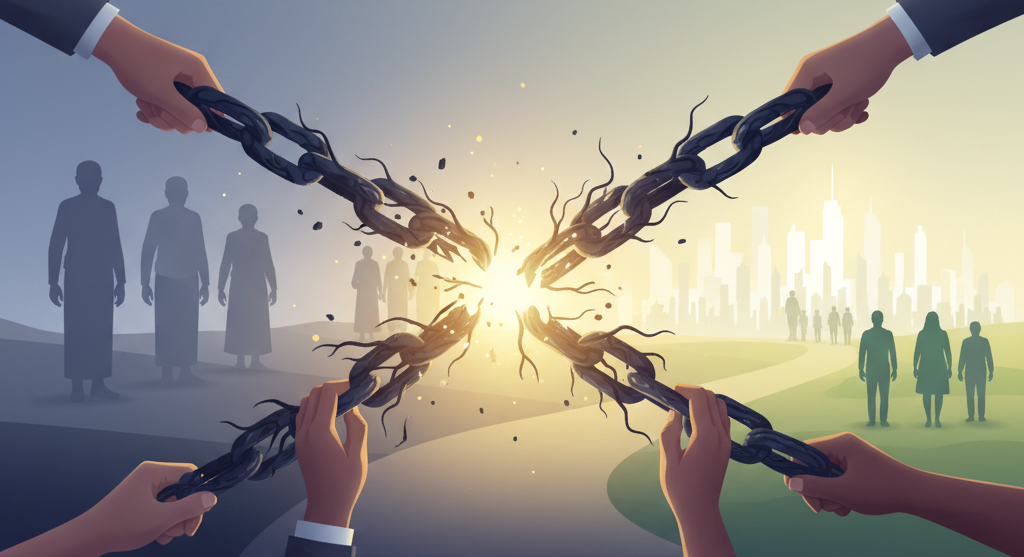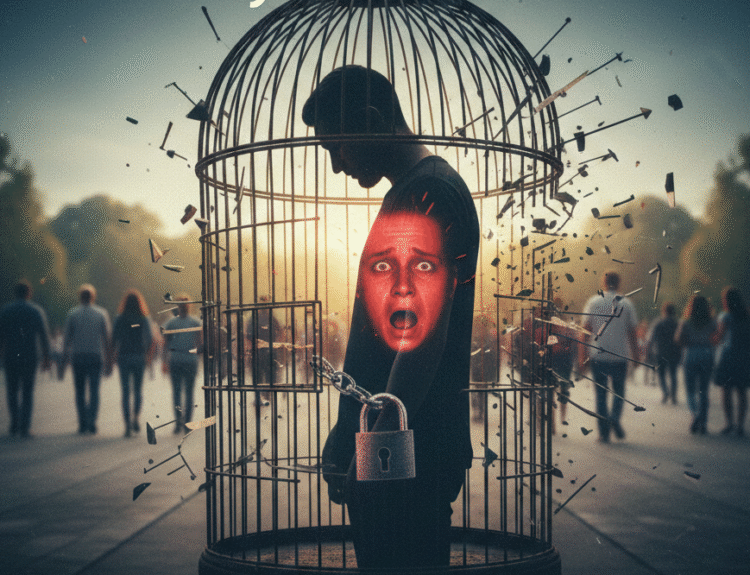When did we stop asking why some people are dismissed and treated as “less” simply because of their gender, creed, color, caste, or family background?
Consider the double standards: why are girls routinely told to stay quiet while boys are encouraged to lead? Why is a loving marriage across sectarian lines treated as a betrayal? The moment we challenge these entrenched beliefs, the suffocating answer is always the same: “What will the society say?” Why must a woman constantly fight to be more than a wife, mother, or sister, struggling to have her voice heard in serious matters?
By examining the formation and transmission of these destructive stereotypes through the lens of psychology, we can uncover how deeply these prejudices are ingrained and unconsciously passed from one generation to the next. Crucially, we will also explore the path to breaking this cycle and prove that we are not destined to repeat the errors of the past.
The subtle, damaging influence of gender roles begins early. A study by Dr. Sonia Chawla explored how boys and girls are treated differently across home, school, and social environments. She found that inherited expectations like “girls must obey” or “boys shouldn’t cry” can deeply affect a child’s confidence and life choices.
These rigid stereotypes force girls to shrink their dreams and suppress their desires, restricting their path to happiness. Similarly, boys are forced to suppress their emotions, leading to emotional unavailability later in life as sons, husbands, and fathers. As a result, both genders suffer, and inequality persists. The study suggests that consciously changing these inherited messages at home is key to building a more equal and healthy society. The transmission of this bias is often startlingly casual.
Imagine a father telling his son, “Your mother is from a lower caste. She only knows how to cook.” What kind of respect does this teach the son for his mother or for any woman? If he says to the mother in front of the child, “Don’t interfere in the matter,” the message is clear: women are not intelligent and should not be included in decision-making. The son learns the inherited prejudice that a male must be the dominant figure at home, a destructive idea that will inevitably pass down through generations.
“It’s time to look within and realize that no soul is born to be silenced, and no soul is born to be superior”.
The mechanism of this prejudice is further illuminated by research into caste identity. The seminal study, The Nature of Caste Prejudice: A New Look at Prejudice, Social Identity, and Casteism by Aditi Gupta and Ankuur Sarin, provides insight into the power of this identity. The researchers found that individuals who expressed great pride in their caste were significantly more likely to hold negative views about other castes and often opposed policies meant to support disadvantaged groups. This study demonstrates that when caste becomes a source of ego or pride, it inevitably transforms into discrimination.
The issue is not one of education; it is about the negative social values people inherit and pass on. This dynamic becomes even more complex when tied to faith. We have, with deep sorrow, become so-called Muslims who follow only the teachings we like, ignoring those that challenge our rigid, inherited beliefs. When asked, “Are you Sunni, Shia, or Ahl-e-Hadith?” many reply, “We are just Muslims,” citing the Quran’s warning against dividing into sects.
Yet, we must ask: Are sects and caste systems truly part of Islam? Or are we blindly following trends absorbed from outside? Islam teaches unity; it does not divide people by birth, surname, or family status. Over time, however, we have absorbed practices that reflect social hierarchy more than religious truth. We must question if we are following only the parts of our faith that favor our pre-existing prejudices while ignoring those that preach universal human dignity.
These deeply rooted biases are absorbed from childhood – in family conversations, advice from elders, and even within traditions and religious gatherings. But do we ever pause and ask: Where did these ideas come from? Do we wonder why we still follow inherited prejudices, even when they hurt others? Imagine for a moment: What if we were born into the same caste, gender, or race we look down upon? Would we accept being called “low standard” or treated as “less”?
The most unsettling aspect is that highly educated people continue to follow these generational prejudices, proudly passing them to their children. One such moment is witnessing a father speak to his young son about caste with quiet pride. The father casually mentions how his own father spoke badly about other castes, saying, “They are from a lower caste, so it’s in their nature to behave foolishly or fail.” The child listens silently, and the belief begins to settle in his mind, unquestioned because it came from a trusted source. That boy now carries an undeserved pride, believing his caste makes him superior.
This false, inherited belief blinds him to self-growth, trapping him in an illusion of dominance while others move forward. These are not merely opinions; they are deep-rooted stereotypes passed unconsciously, creating corrosive outcomes.
The good news is that prejudices are not permanent. A study by Sukhadeo Thorat and Katherine focused on the impact of social awareness programs regarding caste discrimination. Students were surveyed about their opinions toward lower-caste groups before and after watching the program.
The results showed that many students became significantly more open-minded and less judgmental afterward. This study proves that human minds can dismantle these biases through conscious awareness and unlearning. We were not born with prejudices; we were taught them.
The names, the labels, the divisions – they are all human-made constructs. Our hearts were never created to hate, judge, or divide. Generations before us may have walked in the darkness of inherited bias, but we hold the power and the responsibility to stop it here.
Let us be the first to truly embrace a liberal approach and end this cycle. Let’s raise children who don’t carry the baggage of generational trauma of superiority or shame. We should teach them to see worth in every human, not by name, caste, or sect, but by kindness, character, and truth. Before we judge, let’s reflect with an open heart: Does discrimination make us truly educated? Did our faith teach this? If we don’t break this cycle, who will? It’s time to look within and realize that no soul is born to be silenced, and no soul is born to be superior.





